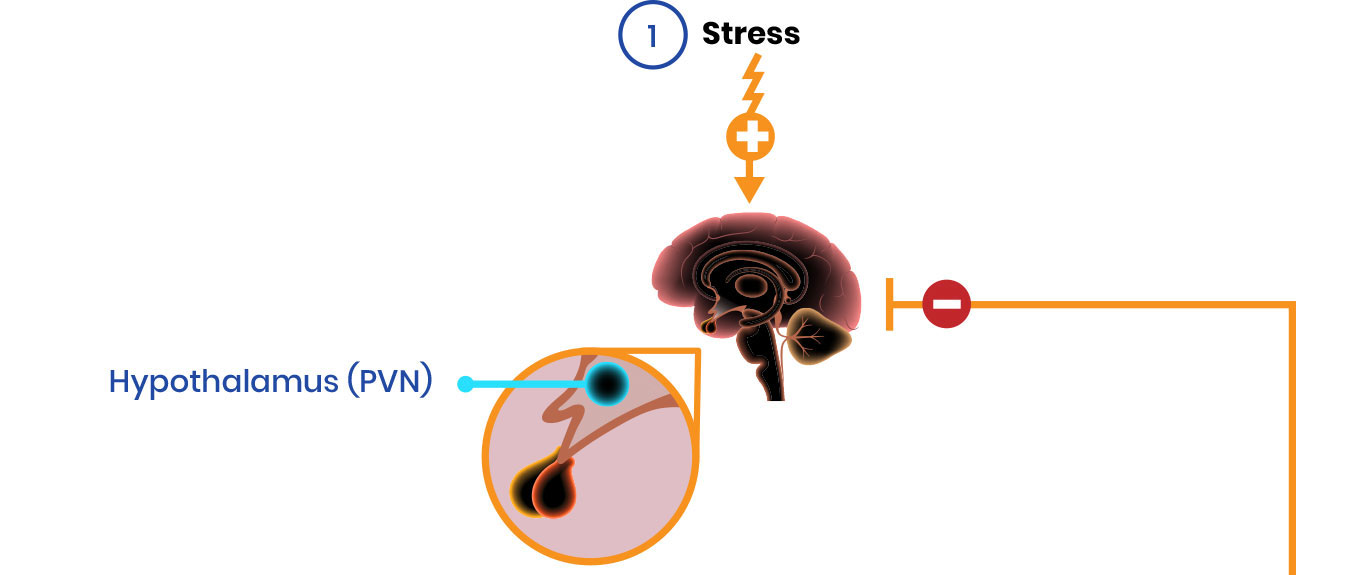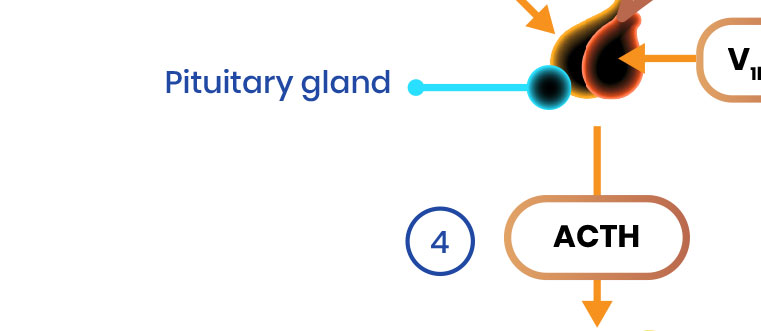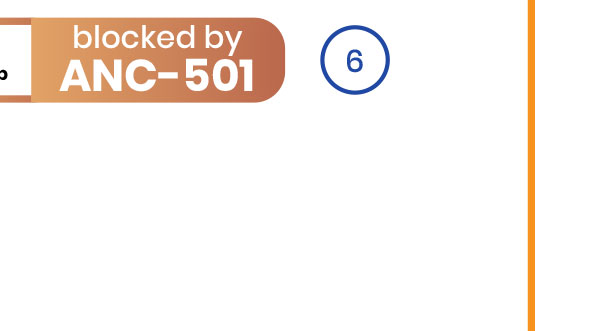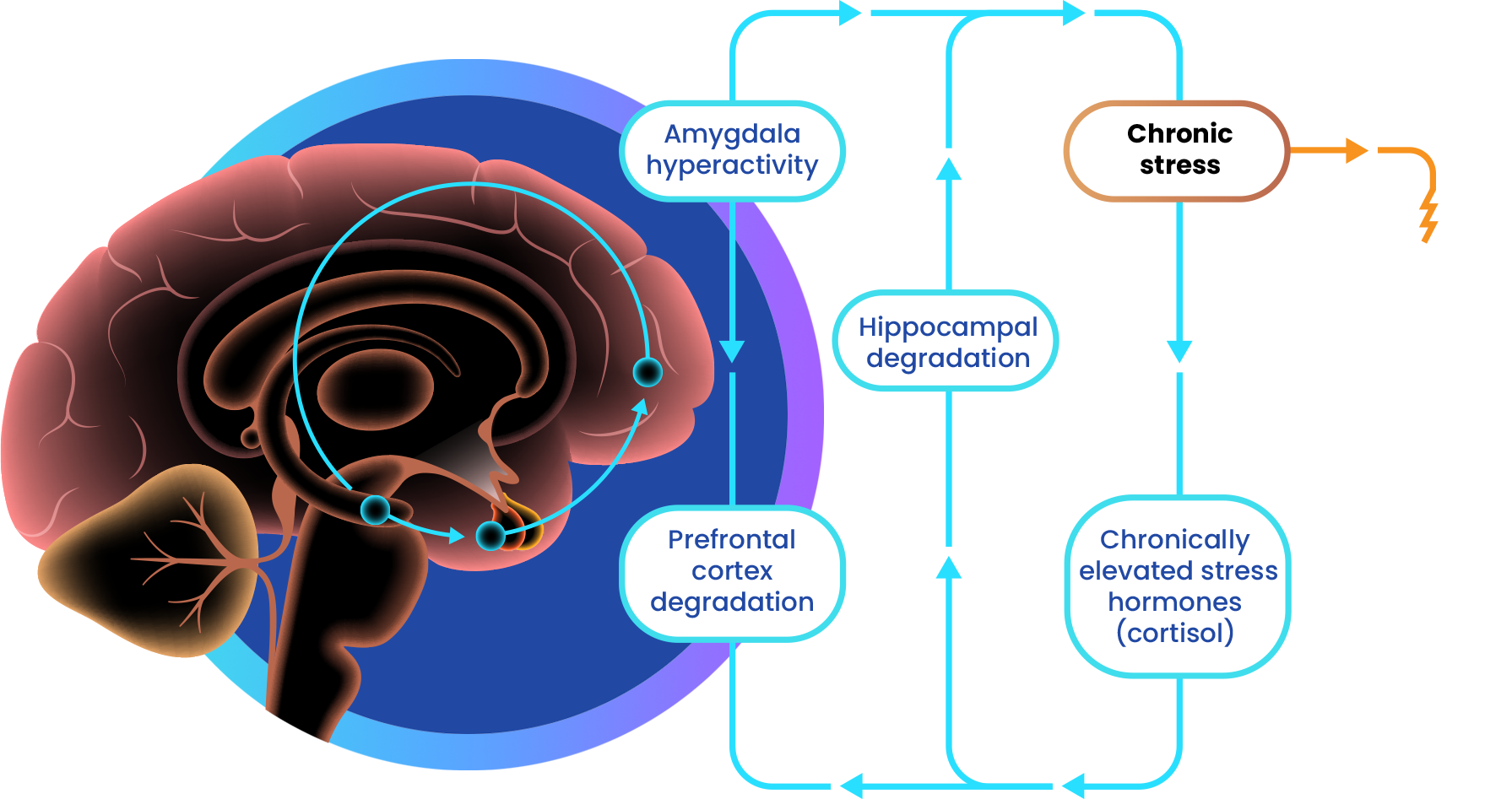ROOTED in biology
EmbarkNeuro is committed to improving the lives of patients with a precision approach targeting the underlying causes of mental health disorders.

EmbarkNeuro is committed to improving the lives of patients with a precision approach targeting the underlying causes of mental health disorders.
![]()
DEEP UNDERSTANDING
of the biology to identify new approaches
![]()
HARNESSING TARGETED MECHANISMS
that precisely modulate dysfunctional pathways
![]()
IDENTIFYING BIOMARKERS
to select patients most likely to respond
![]()
STARTING
with major depressive disorder
During a normal stress response, cortisol release by the HPA axis promotes a mild state of anxiety, alters attention and memory, limits dysphoria, and alters pleasure and reward processing to allow for appropriate focus on the stressor. Repeated or excessive psychosocial stress or trauma, however, can shift the body’s stress response equilibrium to a “new normal” that is defined by lasting changes and impairments in how the various components of the HPA axis respond to cortisol regulation. Such impairments in the HPA axis stress response have been linked to symptoms of depression and other neuropsychiatric disorders, suggesting that HPA axis-targeted therapies may be effective in treating patients with these disorders.
ANC-501 is an investigational compound that blocks the ability of vasopressin (AVP) to trigger release of ACTH from the pituitary gland via antagonism of vasopressin 1b (V1b) receptors in the anterior pituitary. Among patients with depression and other neuropsychiatric disorders that have elevated cortisol levels indicating HPA axis impairment, this targeted antagonism of the V1b receptor using ANC-501 may be a promising treatment approach.
Click on the numbers below for more information.
|
CLOSE
1 Stress
Stress from a variety of Sources triggers a series of changes in Brain and Behavior
 |
|
|
CLOSE
2 CRF + AVP
Stress causes Corticotropin releasing factor (CRF) and Vasopressin (AVP) to be released from the Hypothalamus in the brain
 |
|
|
CLOSE
3 CRF
CRF and AVP together interacts with the CRF1 and Vasopressin 1b receptors in the Pituitary Gland
 |
|
|
CLOSE
4 ACTH
CRF and AVP stimulate the release of Adrenal Corticotrophic Hormone (ACTH)
 |
CLOSE
6 ANC-501
ACTH causes the Adrenals to release the stress hormone Cortisol which then circulates throughout the body. Cortisol Feedsback to the brain, reducing CRF release thereby shutting down the immediate Cortsol Release due to a stressor
 |
|
CLOSE
5 Cortsol
ACTH causes the Adrenals to release the stress hormone Cortisol which then circulates throughout the body. Cortisol Feedsback to the brain, reducing CRF release thereby shutting down the immediate Cortsol Release due to a stressor
 |
|

Chronic stress leads to elevated circulating levels of the stress hormone Cortisol. The long term effects of elevated cortisol levels in the brain include structural changes, changes in the way that brain cells talk to each other (connectivity changes), activation of the brains fear center called the Amygdala resulting in worsening stress and potentially leading to depression. The types of stress, genetics, epigenetic factors and resilience all play a role in an individuals response to chronic stress and risk for developing depression.